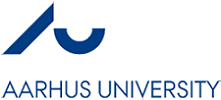Quantitative Economics

Teaching at PhD-level
The two-year International Master of Science in Quantitative Economics (IMSQE) programme is an elite full-time MSc programme at the Department of Economics and Business Economics, Aarhus BSS. Students tailor their own study programme based on a range of advanced-level courses with a quantitative orientation and selected PhD level courses. The programme requires strong analytical skills in quantitative methods and there are special requirements regarding the level and qualitative content of written assignments.
Learning Objectives
The IMSQE programme provides the students with a number of outstanding qualifications. They will acquire analytical skills at a very high level, and they will thus be able to apply the methods that they have learned to new cases, to formulate new theories, to formulate and test hypotheses, and to reflect upon the validity and relevance of various scientific methods and substantive theories within the field. This implies that the students will be able to go well beyond reproduction of known material, and working independently on new topics within the area will be a core competence of the elite students.
Aims
The purpose of the IMSQE programme is to provide candidates with advanced-level training within the analytical, quantitative disciplines of macroeconomics, microeconomics, economics, econometrics, finance and accounting. The IMSQE programme aims at recruiting candidates within quantitative economics and management internationally, in competition with leading institutions such as London School of Economics, Oxford University and Cambridge University.
Graduates of the IMSQE programme have acquired analytical skills at a very high level, which are in increasing demand. Potential future employers are Danish as well as international organizations, consulting firms, ministries and government agencies, and financial institutions such as commercial banks, mortgage institutions, pension funds, insurance companies and investment banks. Furthermore, the IMSQE programme provides an excellent opportunity for graduates to continue their studies at PhD level. There are options for both a three-year programme for students having completed their master degree and a four-year programme, in which students enroll after having completed the first year of the master programme.
Na studia magisterskie mogą kandydować wszyscy, którzy ukończyli studia licencjackie lub inżynierskie (studia I stopnia), studia magisterskie lub studiują na ostatnim roku studiów I-stopnia. Studia, które planujesz powinny mieć zbliżony profil do tych obecnych lub ukończonych, ponieważ w procesie rekrutacji kluczowa jest ich zgodność programowa.
Wykaz punktów ECTS – osoby, które są jeszcze w trakcie studiów, muszą załączyć wypis punktów ECTS, w którym będzie wykazane, jakie przedmioty były realizowane na studiach oraz ile punktów za nie otrzymano.
Dyplom ukończenia studiów licencjackich lub inżynierskich – jeśli jesteś absolwentem wyższej uczelni, nie potrzebujesz wypisu, wystarczy załączyć dyplom ukończenia studiów wraz z suplementem (w języku angielskim lub oryginał z tłumaczeniem)
Course description - należy przygotować dokument, zbierający cały sylabus ze studiów licencjackich. Takie sylabusy najczęściej są do pobrania na stronie uniwersytetu. Należy je przetłumaczyć na język angielski (można samodzielnie) i złączyć w jeden dokument. Warto też zapytać w dziekanacie uczelni, czy nie dysponują wersją angielską.
Oficjalna skala oceniania Twojej uczelni - możesz dostać taki dokument w dziekanacie Twojej uczelni lub skonstruować samodzielnie. W obu przypadkach dokument powinien zawierać pieczątkę dziekanatu.
Spełnienie wymagań w zakresie języka angielskiego można udokumentować w jeden z następujących sposobów:
IELTS – 6.5
TOEFL – 83 (Aarhus University TOEFL kod - 8935)
Uwaga: wymagania językowe mogą ulec zmianie. Przed wysłaniem aplikacji upewnij się jakie są wymagania językowe na konkretny kierunek bezpośrednio na stronie uczelni.
W przypadku zdawania certyfikatu IELTs upewnij się, czy uczelnia oprócz wymagań oceny końcowej nie ma również wymagań odnośnie ocen cząstkowych.
If you want to apply to this masters programme you need to have obtained one of the following:
- BSc in Economics;
- BSc in Politics;
- BSc in Scientific Economics;
- BSc in Mathematical-Economics.
Students with a hard-to-assess but promising record may be required to take an admission test.
All students applying may be called in for an interview.
Along with the application the applicant must upload:
- Course descriptions in English briefly describing the contents of the applicant's specific BA courses or other information that will contribute to describing the contents of the applicant's Bachelor's degree programme (may be translated by the applicant, but certified by the applicant's university).
- Official descriptions of relevant courses to be completed after the application deadline.
- An official description of the marking scale used at the applicant's home university.
Graduates of the elite programme acquire analytical skills at a very high level. Potential future employers for elite graduates include Danish as well as international organisations, consulting firms, ministries, government agencies and financial institutions, including commercial banks, mortgage institutions, pension funds, insurance companies and investment banks.
Positions, that can be take after graduating from this programme:
- Administrative - reporting;
- Analysis - handling of data (databehandling), data validation presentation of analysis (fremstilling af analyser), competitor analysis (konkurrentanalyser), market analysis, scenario analysis, cost analysis (udgiftanalyse) and economic analysis;
- IT - programming;
- Economy and Accounting - modelling and audit.
